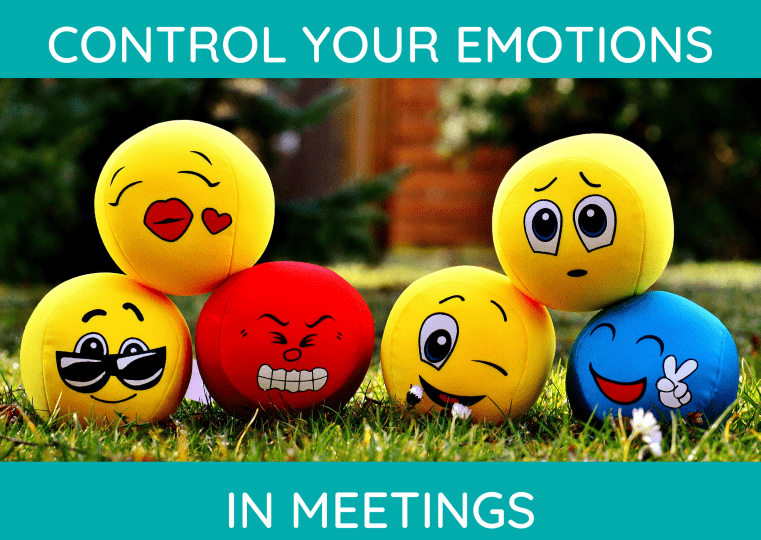This is the commonest question I get from managers in my Meeting Monsters Masterclass


Look after your needs, turn off your internal judge and align your body-mind to control your emotions


Avoid knee-jerk reactions when someone ‘pushes your buttons’
Our subconscious scans for threats several times a second
Humans are driven by three key needs: Safety, Security and Status. If our subconscious perceives that any one of these is at risk, it triggers a stress response to mobilise our emotional and physiological reactions and directs our thoughts to focus on survival.
This can cause knee-jerk emotional reactions we later regret. All the while, our conscious mind justifies our emotions with an internal narrative: a well-meaning attempt to make us right (and keep us feeling safe).
And because each of us has our own unique internal filter, based on our culture, education and experiences: what triggers me as a threat is likely to be very different to what triggers you.
That’s why our emotions can sometimes get the better of us in meetings: our subconscious labels people, topics or situations as a threat to one of our 3 key drivers. A protective response kicks in, which makes us uncomfortable and propels us to take action. Some of us lash out in anger, others shut down: we each have our own style of responding to real or percieved threat.
Try these three steps to control your reactions:
Step One: Notice your reactions and observe them objectively, as if you were a social scientist investigating your own behaviour: How am I feeling? Where in my body am I feeling it? Am I getting hot? Is my heart beating faster? What’s my breathing doing right now? This curiosity allows you to get to know yourself really well. It also mobilises your thoughts, breaking free from the emotional hijack.
Step Two: Identify which key driver (Safety, Security, Status) felt threatened. Once you identify which driver felt under attack, you can take the necessary steps to protect it. Remember, we alone can be responsible for meeting our own needs. If we look to others (people, organisations) then we hand over our power to them and become victims. You might not be able to do this in the heat of the moment, but you can certainly do it as you replay the ‘movie’ in your mind afterwards
Step Three: Commit to take care of your own needs, no matter what. So for example, if you identified that you felt out of control and unprepared (lack of safety) then you could decide to prepare more thoroughly before the next meeting so you are ready to deal with potential questions or challenges.
I’d love to hear from you if you’ve noticed your emotions getting the better of you in meetings: what do you struggle with? Have you found ways to control your knee-jerk reactions? Help others by sharing your experience in the comments below: together we make change happen!

Leave A Comment